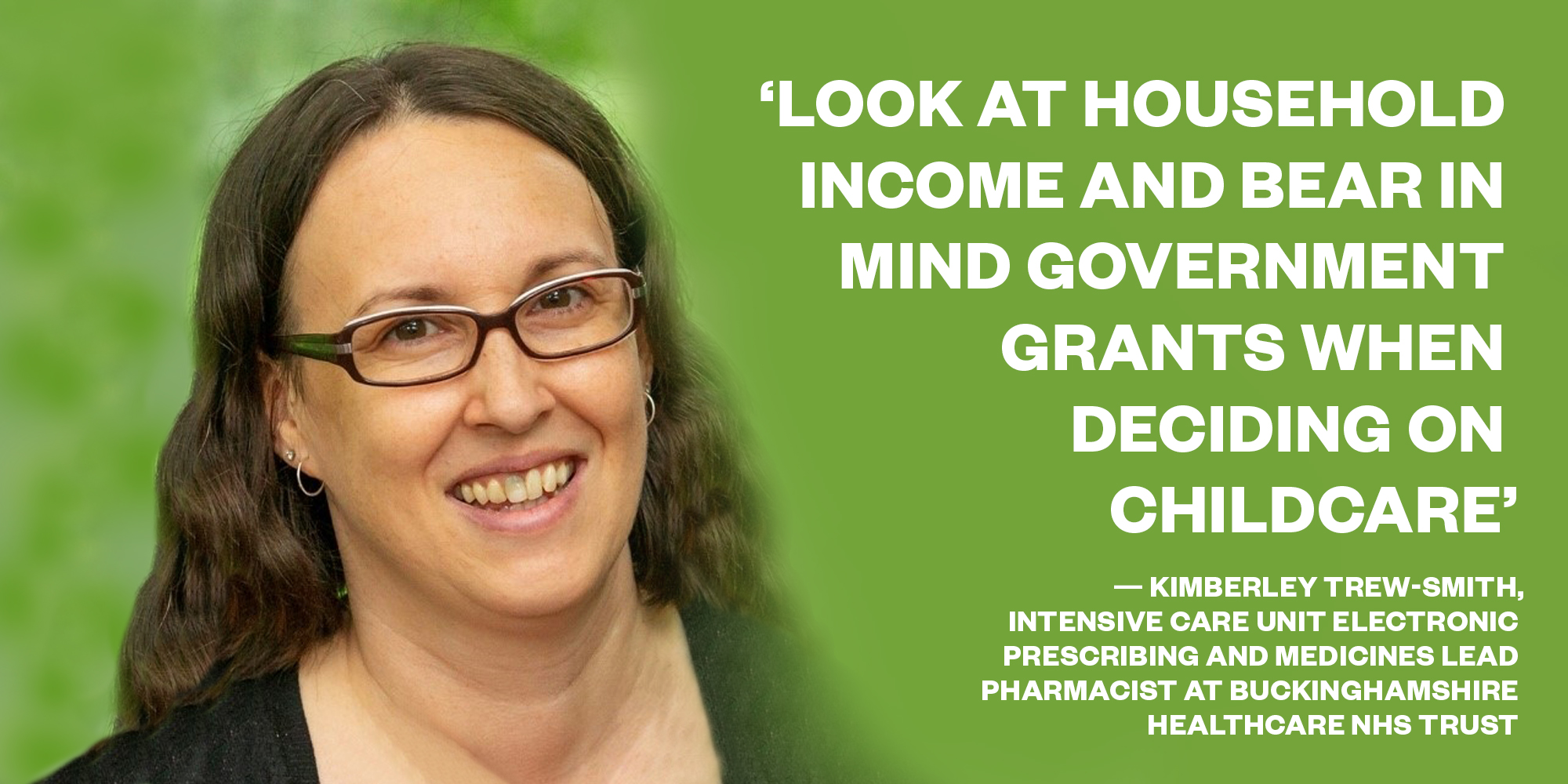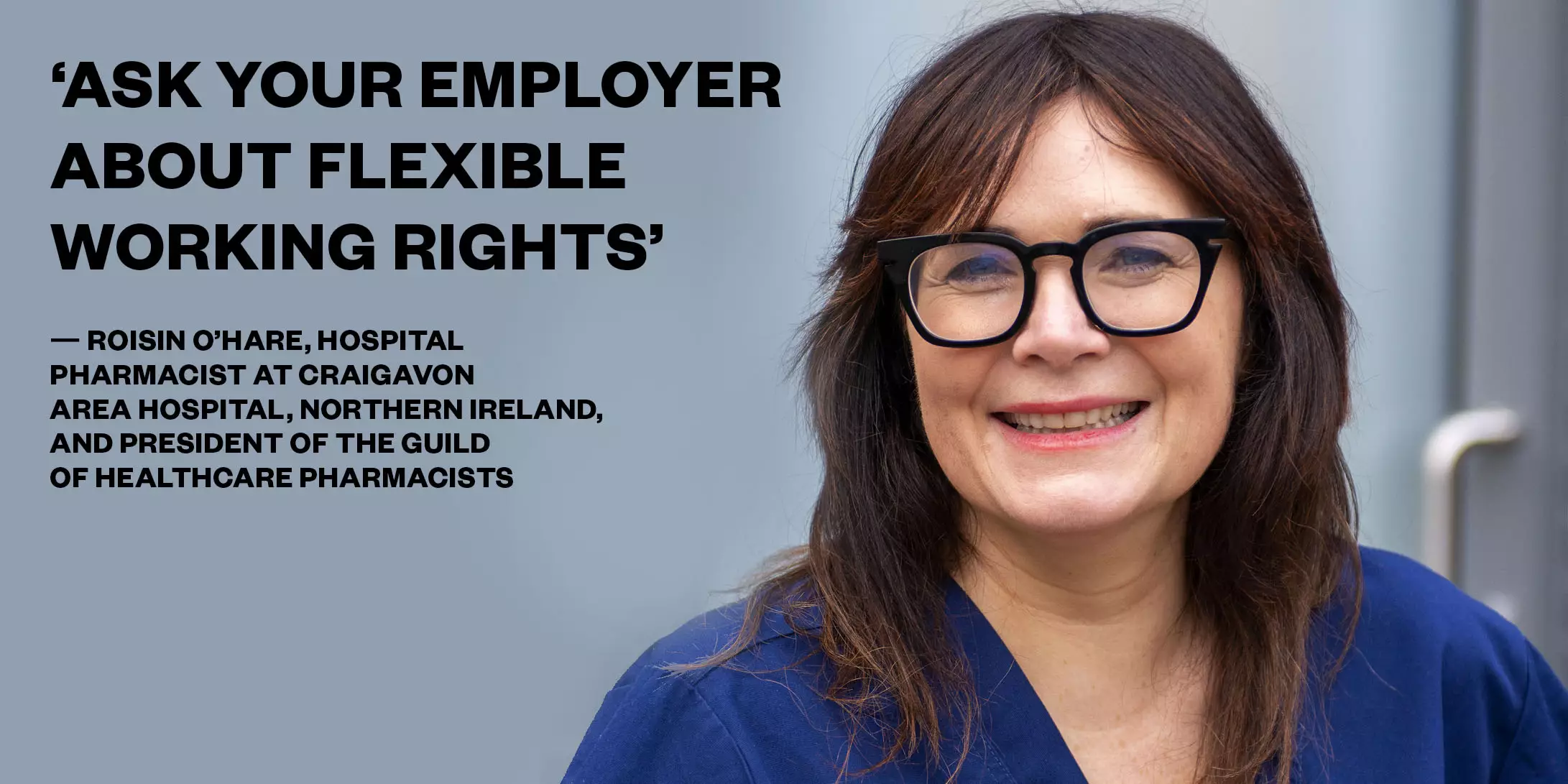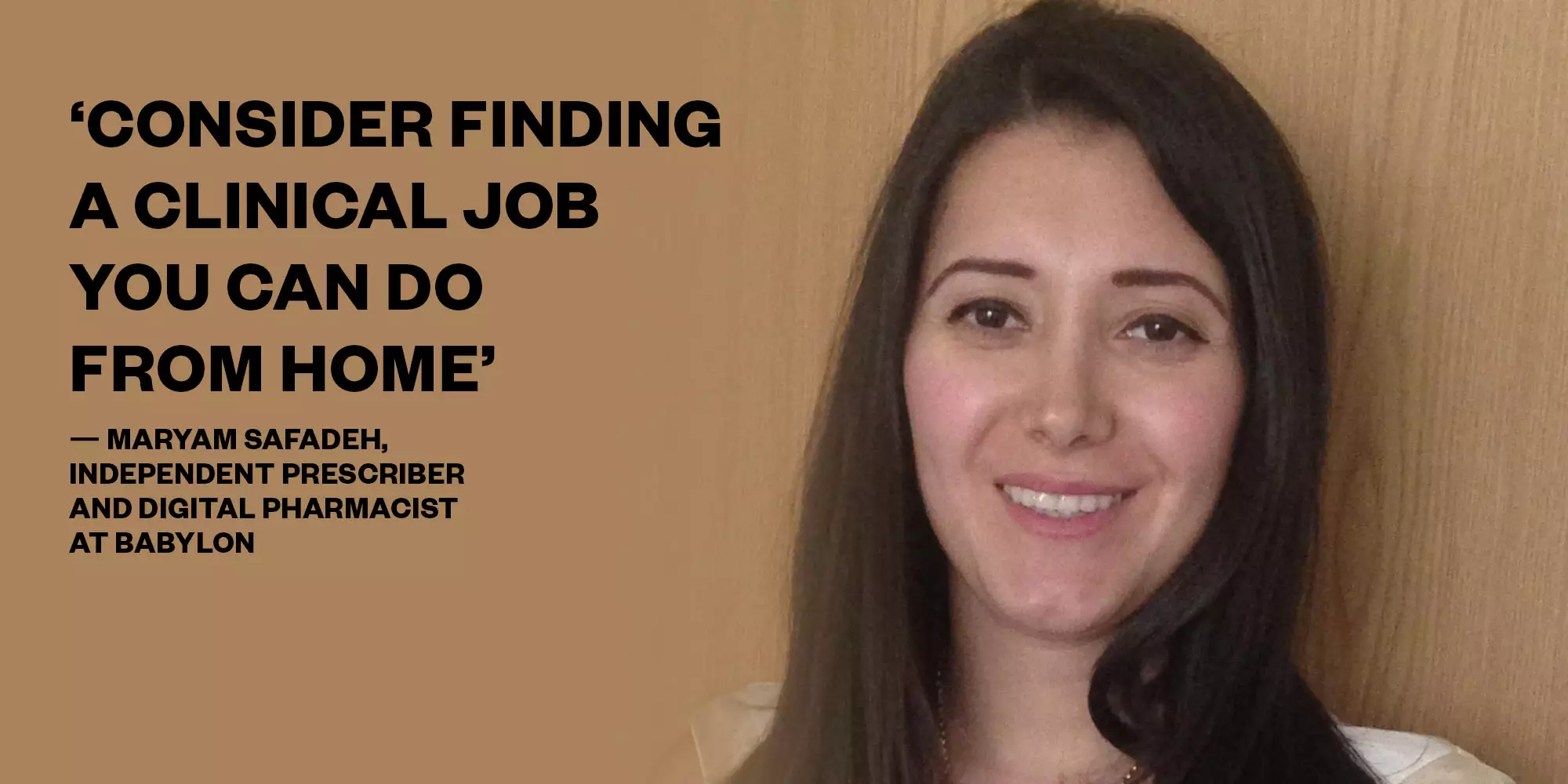
Mclean
Organising a period of parental leave — following the birth of a baby, adoption or fostering, or for any reason to do with the care of a child — comes with many aspects to consider.
First there’s the HR requirements that need to be put in place before you go on parental leave. Are you sharing parental leave with your partner, and how long do you intend to take? Then there is navigating your return — you may find that your ambitions, priorities and goals have shifted during your time away from work, or perhaps you want a total change of direction. The attitude of your colleagues towards you could also be different when you return after a period of time, not to mention any changes in the technology, people and processes you were familiar with before you went on leave. The cost of childcare should also be considered, which could make you want to consider part-time or flexible working.
None of this is insurmountable, as the following advice from our panel of parents shows.

“Shared parental leave allows mothers to end maternity leave or maternity pay early, so that one or both parents can take their leave entitlement in a more flexible way during their baby’s first year.
When my partner Ben and I adopted twin boys, we took adoption leave. Different organisations have different policies but, as a rule, shared parental leave works in the same way as maternity and paternity leave allowances, and you and your partner can share those between you or take them at the same time. I took 13 weeks paternity leave — which I split over a few periods of time — and Ben took the equivalent of the maternity allowance, with 11 months off.
We found sharing parental responsibilities this way gave us both the chance to take an active role in our sons’ lives, but now I understand how stressful it can be when you return to work. There was always this worry in the back of my mind that people would find out they could survive without me. I realised that if I felt this precarious taking time off to be with my children, as a white man in a senior role, how must women in the early stages of their careers or people from ethnic minority backgrounds feel when they are on parental leave.
My immediate response was to throw myself back into work twice as hard when I returned, but my advice for other people in the same situation is not to put really high expectations on yourself — most of your colleagues will understand you are unable to be immediately 100% up to speed.”
Robbie Turner, director of pharmacy and member experience at the Royal Pharmaceutical Society

“When I returned to work after 14 months of maternity leave in March 2020, my husband and I wrangled with how many days per week would be feasible to put our daughter into nursery. He works as a hospital pharmacy technician four days a week and, because we wanted to share time with our daughter 50:50, I wanted a day off in the week with her as well, which would mean me dropping to part-time hours, so there was a cost issue to consider.
We found that childminders are generally cheaper than nurseries but they do not necessarily supply food or nappies. Parents generally have to pay their own childcare fees for the first two years, although some parents with children aged two years are entitled to free childcare. The government offers grants for childcare funding for 15 or 30 hours a week for all three- and four-year-olds, depending on the household income and working hours. This means working parents need to consider earnings versus how much the different childcare options cost.
Parents will need to look at their household income, bearing in mind the government childcare allowance but taking into account extra costs. In the end, we decided on a nursery we both liked where my daughter could attend from 08:00–18:00, three days a week. We pay a little bit more for that but, for us, it is worth it.”
Kimberley Trew-Smith, intensive care unit electronic prescribing and medicines lead pharmacist at Buckinghamshire Healthcare NHS Trust

“When my first child was born, I developed postnatal depression (PND). I did not know anything about PND and I struggled. With my second child, I realised that I coped best by keeping my mind busy by balancing motherhood with work and I was lucky I could do this with childcare help from grandparents.
My third baby arrived in the middle of the COVID-19 pandemic, so no family members were able to come over to help, but I still went back to work after a few weeks because, in my experience, going back to work helped me bounce back from PND quicker.
I realise I am fortunate to be able to make the choice that I did, but I want to stress that we should make sure that women feel they have a choice, and the ‘right’ choice is always the choice that’s right for you. If you choose to look after your children at home, for as long as you like, you are not worth less than those who go back to their career as fast as they can. Similarly, wanting to go back to work quickly does not make you a bad mother. In my case, it made me a better mother because it helped me get over my PND faster. I strongly believe that returning to work did not just benefit me, it benefited my children and my family.”
Leyla Hannbeck, chief executive of the Association of Independent Multiple Pharmacies

“The NHS is a 24/7 environment, rather than traditional 09:00–17:00 hours, and the COVID-19 pandemic has escalated that. However, there is a broad range of flexible working options available to those working for the NHS, such as part-time hours, flexi-time, compressed hours and so on.
Everyone has the right to ask for flexible working, but not the automatic right to get it. For those working for the NHS, you must be employed continually for more than 26 weeks before you qualify. This may vary across the UK nations and for employees outside the NHS, but your HR department — or NHS Employers and/or your union — will be able to tell you.
Whichever kind of flexible working you are asking for, put together some viable proposals that will work for your role. It is up to you to show your manager how things will run during the times you are not there, rather than expecting them to work this out. If you request a change to your working pattern, you need to give plenty of notice and appreciate it is unlikely that changes can be put into place immediately. It could be at least three months before your employer reaches a decision because they must work out how to balance the whole team and work around you.
On the whole, employers will try to be as family friendly as they can but, to make it work, you must be prepared to negotiate with your employer on what works for both of you, reaching a good compromise.”
Roisin O’Hare, hospital pharmacist at Craigavon Area Hospital, Northern Ireland, and president of the Guild of Healthcare Pharmacists

“In 2020, when my children were aged one and three years, I quit my hospital pharmacy job and we all moved to New Zealand for a year because my husband was offered a work placement. By the time we came back, I knew I wanted a job that would fit in with family life, especially since we had decided to homeschool my son, who has special needs.
I specialised in anticoagulation and cardiology, so returning to a hospital role was not an option because you have to be able to deliver a specific service at specific times, which makes it hard not to feel guilty if you need time off.
When I saw a consulting role advertised at Babylon’s online GP service, I thought it would be too ‘general practice’ for me, but I went for it anyway and was lucky enough to get it.
I have been working at Babylon for just over a year now and it is safe to say it has been a steep learning curve. Working remotely means you cannot knock on the door of your team for advice, and it can be isolating if you are someone who needs an in-person support network — although we have Zoom lunch breaks and I use these to keep up with colleagues.
I currently work ten hours a week and my employer is very accommodating if I need to change my shift pattern at short notice — say, if one of the children is sick. Eventually I’m aiming to increase my hours, but for now it works really well because I can continue to use and develop my clinical skills but still have time with my family.”
Maryam Safadeh, independent prescriber and digital pharmacist at Babylon Health

“My husband is an intensive care doctor and I was working as a general practice pharmacist before having my first daughter, now aged four years. I took just over one year off on parental leave but, as I was getting ready to return to work, it hit me that a future with my husband and I both working for the NHS was not appealing if we were ever going to have any family time together.
Having always been interested in skincare, I decided to open my own aesthetics clinic. I started studying for my aesthetic prescriber qualifications just as my parental leave was over and handed in my notice. We moved back from Devon to Brighton, Sussex, to be near family and opened the clinic here in 2019.
While being able to work when I want is great, the amount of work I do at home is a lot more than I had anticipated. Working from home does not necessarily make childcare easier, especially with pre-school-aged children (our second daughter was born in 2020). I’ve found that organisation is essential, by breaking down tasks into bite-sized, achievable chunks. For example, I have worked out what are the ‘green tasks’ I can do when I’ve had a bad night and have only had four hours’ sleep, while ‘red tasks’ can be left for another day.
As pharmacists, we can sometimes be fearful of taking a risk, but staying within your comfort zone will never get you as far as putting yourself out there and trying something new. I enjoyed working in general practice but, although being my own boss is harder work, I would choose this over anything.”
Iki Rhode, aesthetic pharmacist prescriber and founder of Aesthetic BTN
Box 1: Your rights and responsibilities
Everyone has a right to return to work after parental leave
Employees are entitled to return to the same job after parental leave with the same or better pay and conditions. It is unfair dismissal and maternity discrimination if your employer does not let you return after parental leave, or if they offer you a different job without a strong reason.
You can ask your employer for flexible working at any time
Flexible working could mean changing your days or hours, working from home or switching from shifts to a regular work pattern. Your employer does not have to say yes, but they should arrange a meeting to discuss your request and give you a decision in writing within three months, including reasons if they refuse.
You can request a phased return to work
Employers are not legally obliged to offer a phased return but it is considered good practice. You may benefit from a phased return to work, particularly if you are returning at the same time as your child is starting nursery care, which can be logistically and emotionally challenging. You can agree a phased return plan before going on parental leave and review it during ‘keeping in touch’ (KIT) days to ensure your needs have not changed. Employees are allowed to work 10 paid KIT days during maternity or adoption leave and 20 days during shared parental leave.
You can decide not to return to your job
Your contract will tell you how much notice you need to give your employer if you decide not to return to work. Make sure you get paid for any holiday you have left — including time accrued while you were on parental leave — and check if you need to repay any maternity pay. If you get contractual maternity pay, you might only be able to keep the full amount if you return to work.
You can take unpaid leave to look after your child
If you have worked for your employer for at least one year, you have the right to unpaid time off to look after your children and can take up to 18 weeks’ unpaid leave before your child is aged 18 years. You can also take unpaid time off to deal with unexpected problems, such as when childcare arrangements fall through.
You can ask for a deadline extension or a reduced number of revalidation entries
If there is a period of three months or more when you are not practising, you can ask the General Pharmaceutical Council (GPhC) for a submission deadline extension or record reduction. This should be done as soon as possible.
The GPhC has also extended changes to its revalidation requirements in recognition of the continuing pressures that pharmacy professionals are likely to face in winter 2021/2022, with those due to submit records from December 2021 to February 2022 only needing to submit a reflective account.
Box 2: Further information and resources
- Citizens Advice: Parental rights at work
- NHS Employers: Family leave
- Gov.uk: Shared parental leave campaign
- Gov.uk: Unpaid parental leave entitlement
- ACAS: Shared parental leave and pay
- Maternity Action: Shared parental leave and pay
- Working Families: Returning to work at the end of maternity leave
- Royal Pharmaceutical Society: Returning to practice guide
- The Pharmaceutical Journal: Five legal protections soon to be or new parents should know about
- The Pharmaceutical Journal: Pay and leave entitlements for new parents


